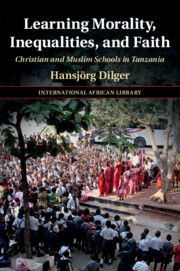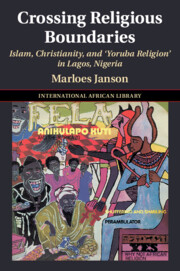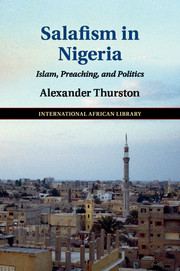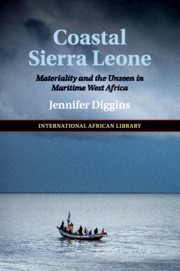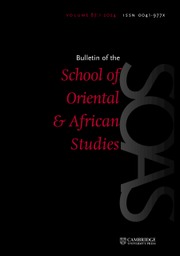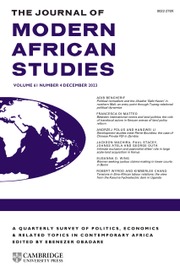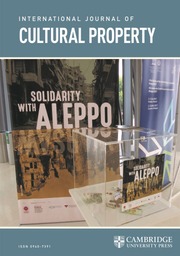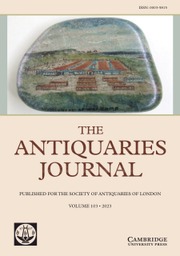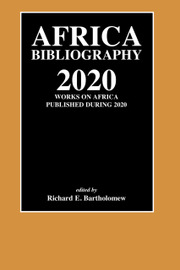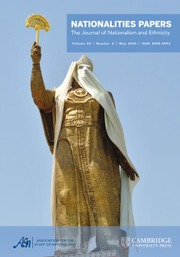Learning Morality, Inequalities, and Faith
Christian and Muslim Schools in Tanzania
£29.99
Part of The International African Library
- Author: Hansjörg Dilger, Freie Universität Berlin
- Date Published: July 2024
- availability: Available
- format: Paperback
- isbn: 9781009077972
£
29.99
Paperback
Other available formats:
Hardback, eBook
Looking for an inspection copy?
This title is not currently available on inspection
-
Christian and Muslim schools have become important target points in families and pupils' quests for new study opportunities and securing a 'good life' in Tanzania. These schools combine secular education with the moral (self-)formation of young people, triggering new realignments of the fields of education with interreligious co-existence and class formation in the country's urban centres. Hansjörg Dilger explores the emerging entanglements of faith, morality, and the educational market in Dar es Salaam, thereby shedding light on processes of religious institutionalisation and their individual and collective embodiment. By contextualising these dynamics through analysis of the politics of Christian-Muslim relations in postcolonial Tanzania, this book shows how the field of education has shaped the positions of these highly diverse religious communities in diverging ways. In doing so, Dilger suggests that students and teachers' religious experience and practice in faith-oriented schools are shaped by the search for socio-moral belonging as well as by the power relations and inequalities of an interconnected world.
Read more- An examination of Christian and Muslim schools in urban Tanzania
- Looks at how transformations in Tanzania's educational sector, and students', parents' and teachers' quests for a “good life” have affected their school and professional trajectories
- Of relevance to students and scholars of Anthropology, Religious Studies, and African Studies, as well as those interested in religious diversity and faith-oriented development, ethics and morality, education and learning, and the dynamics of urban class formation in postcolonial settings
Reviews & endorsements
'A timely and critical analysis of inequality, politics, and power in Tanzania. Dilger shows how religiously diverse discursive and social practices are constructed and reconstructed through specific material conditions which disproportionately position educational institutions in relation to their faith.' Thomas Ndaluka, University of Dar es Salaam
See more reviews'A powerful analysis of religion and education in Tanzania. Dilger's insightful and sensitive handling of a rich range of sources is impressive. This is an important contribution to our understanding of the intersection of schools and states, markets and inequalities.' Amy Stambach, University of Wisconsin, Madison
'Focusing primarily on Tanzania (although the reflections and data could be extended to many multi-religious societies), this is a brilliant and novel approach to the study and understanding of Religious Education in Africa. Scholars, researchers, and laypersons who want to engage with the place of religion in the education market under (post-)neoliberal conditions have a well-researched, accessibly written source in Dilger's work. This book is a foremost contribution to the debate on and understanding of how religion works in educational development and how education works in religious development.' Asonzeh Ukah, University of Cape Town
'Fee-paying faith-oriented schools are playing an increasingly important role for education provision in a wider context of growing inequalities and neoliberal politics. Exploring Christian and Muslim schools in Tanzania from a comparative perspective, Dilger expertly addresses timely questions about how the quest for moral becoming and the marketization of education intertwine. His book is thoughtful, sensitive, and richly detailed – a compelling read with much to offer to anyone interested in religion, morality, inequality, and education.' Hannah Hoechner, University of East Anglia
'This book will clearly have an important influence on future research concerning morality, inequality, and education - and particularly among scholars whose work focuses on religion and/or African contexts. Yet the book's influence may not be confined to university campuses, as Dilger himself seems to anticipate. Books have interesting lives, and this is particularly true in Dar es Salaam where a number of scholarly monographs on matters of religion and uneven patterns of development in Tanzania have, sometimes years after their publication, been swept up into ongoing debates concerning Muslim marginalisation that take place in the city's ordinary streets and houses on a daily basis. There is every chance that Dilger's book will join them.' Benjamin Kirby, Anthropology Book Forum
'Learning Morality, Inequalities, and Faith: Christian and Muslim Schools in Tanzania is a well written and accessible book that builds on solid ethnography and carefully situates ethnographic findings within historical, structural, and political contexts … The book is an important contribution to our understanding of the complex intersection of religion, education, and social inequality in Africa and possibly beyond. Since the book addresses a variety of themes - the formation of ethical subjects, schooling and the liberalization of education, religion, politics of Muslim-Christian coexistence in Africa - it will be of interest to a broad readership.' Martin Lindhardt, Journal of Religion in Africa
'Learning Morality, Inequalities, and Faith is a versatile piece of scholarship. Throughout the book I found no trace of overgeneralization. Dilger is a stickler for objectivity. The author must be commended not only for his nuanced knowledge of Kiswahili but also for his refined finesse in rendering Kiswahili discussions into English. It is a book worth reading.' Hamza Mustafa Njozi, Utafiti Journal
'Dilger combines ethnographic depth with rich theoretical discussion to produce a novel and insightful analysis of the connection between 'the quest for a good life,' education, and religion in a religiously diverse African city, where colonial and post-independence forces have shaped contemporary socio-economic inequalities and other factors influencing the educational sector. He demonstrates what he terms the 'ordinarisation' of value frameworks of the religiously-oriented schools by their students and staff - that is, how the schools' values were learned, discussed, embodied, and expressed in the everyday lives of the pupils and teachers in fluid, non-conscious, and at times intentional manners, as they sought a 'good' life (12) … This text is recommended for students, teachers, researchers, and leaders interested in religion and education, Christian-Muslim relations, and the public role of religion in Tanzania, Africa, and beyond.' Emmanuel Chiwetalu Ossai, Reading Religion
'The book makes a major contribution to developing a comparative analytical approach to the study of religious diversity. … This is a rich study, grounded in relevant theories and illustrated with vibrant examples. The book will become an important reference for policymakers and development workers, in addition to students and scholars of the anthropology of education, religious pluralism, faith-based development, and urban transformation in Africa.' Mara A. Leichtman, Africa Today
'… elegantly written, lucid, and intellectually enriching … Dilger deserves an accolade for producing a magnum opus on the development of religion and education in urban Tanzania. Academics, researchers, and students in anthropology, history, development studies, education, and religious studies will find this book informative in advancing the frontiers of their academic and research agendas. … The extensive fieldwork involving a collection of the voices and lived experiences of individuals, teachers, and leaders of the schools' administrations makes the work a most comprehensive, informative, detailed, thought-provoking, and intellectually engaging piece.' Salvatory S. Nyanto, Religion and Development
'[This book] is a versatile piece of scholarship. Throughout the book I found no trace of overgeneralization. Dilger is a stickler for objectivity. The author must be commended not only for his nuanced knowledge of Kiswahili but also for his refined finesse in rendering Kiswahili discussions into English. It is a book worth reading.' Hamza Mustafa Njozi, Utafiti Journal of African Perspectives
'In this highly interesting and accessible book, anthropologist Hansjörg Dilger explores how the rise of private, faith-oriented schools in Tanzania has affected these processes thereby also operating as a vector of modern secularity. … Taking inspiration from Dilger's book, future research should seek to further connect the pressing issues of religious habitus and religious diversity to the thriving sociological debate on African middle classes and class-based aspirations.' Marian Burchardt, Journal of Modern African Studies
'With its profound insights into how ethical subjects and the 'good life'are always in formation in ordinary educational spaces, how these spaces are deeply entangled with the colonial past and capitalist present, and how young people are some of the most interesting conversation partner from whom we can learn about these processes, 'Learning Morality, Inequalities, and Faith' makes a unique contribution to the fields of the anthropology of ethics, political anthropology, the anthropology of childhood and youth, and Swahili Studies more broadly.' Franziska Fay, Zeitschrift für Ethnologie / Journal of Social and Cultural Anthropology
'This is an exciting and original book, which provides detailed ethnographic material and speaks to a large number of important debates and constitutes an excellent resource for research and teaching in a range of fields. It is highly recommended reading for scholars of religion and education in Africa and beyond, and will undoubtedly also attract readers interested in Muslim-Christian relations, youth, and gender.' Insa Nolte, Religion
Customer reviews
Not yet reviewed
Be the first to review
Review was not posted due to profanity
×Product details
- Date Published: July 2024
- format: Paperback
- isbn: 9781009077972
- length: 281 pages
- dimensions: 229 x 152 x 15 mm
- weight: 0.382kg
- availability: Available
Table of Contents
1. Introduction: The Quest for a Good Life in Faith-Oriented Schools
Part I. (Post-)Colonial Politics of Religious Difference and Education:
2. Entangled Histories of Religious Pluralism and Schooling
3. Staging and Governing Religious Difference in the Haven of Peace
Part II. Moral Becoming and Educational Inequalities in Dar es Salaam:
4. Market Orientation and Belonging in Neo-Pentecostal Schools
5. Marginality and Religious Difference in Islamic Seminaries
6. Privilege and Prayer in Catholic Schools
7. Conclusion: Politics, Inequalities, and Power in Religiously Diverse Fields.
Sorry, this resource is locked
Please register or sign in to request access. If you are having problems accessing these resources please email [email protected]
Register Sign in» Proceed
You are now leaving the Cambridge University Press website. Your eBook purchase and download will be completed by our partner www.ebooks.com. Please see the permission section of the www.ebooks.com catalogue page for details of the print & copy limits on our eBooks.
Continue ×Are you sure you want to delete your account?
This cannot be undone.
Thank you for your feedback which will help us improve our service.
If you requested a response, we will make sure to get back to you shortly.
×
